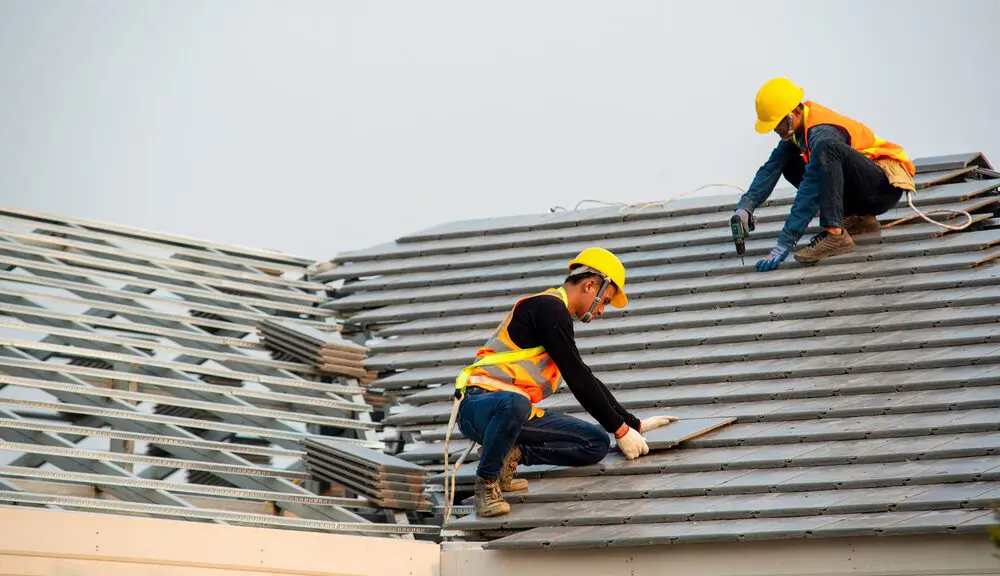When it comes to roofing, homeowners often find themselves debating between flat roofs and pitched roofs. Each option has its own set of advantages and disadvantages, making the decision a critical one for the longevity and functionality of your home. To help you make an informed choice, we’ve gathered insights from experienced roofers in Richmond. In this blog, we’ll explore the key differences between flat roofs and pitched roofs, their benefits, and which might be the best fit for your property.
1. Understanding Flat and Pitched Roofs
Before diving into the advantages and disadvantages, it’s essential to understand the basic definitions of flat and pitched roofs.
- Flat Roofs: These roofs have a slight slope to allow for water drainage but are generally level. They are commonly found in commercial buildings but are also used in residential properties. Flat roofs often provide usable outdoor space, such as patios or rooftop gardens.
- Pitched Roofs: These roofs have a noticeable slope, allowing for efficient water drainage. Pitched roofs come in various styles, including gable, hip, and mansard, each offering unique aesthetic and functional benefits.
Both roof types have their merits, and the choice largely depends on your home’s architecture, local climate, and personal preferences.
2. Cost Considerations
One of the primary factors influencing your roofing choice is cost. Generally, flat roofs are more affordable to install than pitched roofs. Here’s a breakdown of the cost factors for each:
- Flat Roofs: The installation of flat roofs is often less labor-intensive, which can lower overall costs. However, the materials used can vary widely, from EPDM rubber to TPO and PVC, each with different price points. Maintenance costs can be lower initially, but flat roofs may require more frequent repairs over time.
- Pitched Roofs: While the installation costs are typically higher due to the complexity and materials involved (such as shingles, tiles, or metal), pitched roofs generally have a longer lifespan. This can make them a more cost-effective choice in the long run. The design allows for better ventilation and insulation, potentially reducing energy costs.
Consulting with roofers in Richmond can provide a clearer picture of the financial implications of each roofing type based on your specific situation.
3. Durability and Lifespan
When investing in a roof, durability and lifespan are critical considerations. The longevity of flat and pitched roofs can vary significantly:
- Flat Roofs: Depending on the materials used, flat roofs typically last between 10 to 30 years. However, they are more susceptible to water pooling, which can lead to leaks and structural issues if not properly maintained. Regular inspections are essential to prolong their lifespan.
- Pitched Roofs: These roofs are generally more durable, with lifespans ranging from 20 to 50 years or more, depending on the materials. Pitched roofs naturally shed water and debris, reducing the likelihood of water damage and extending their longevity.
For long-term performance, many homeowners choose pitched roofs, but it’s crucial to evaluate your specific needs and consult roofers in Richmond for tailored advice.
4. Maintenance Requirements
Maintenance is another critical factor to consider when choosing between flat and pitched roofs. Each type has different requirements that can affect your long-term costs and efforts.
- Flat Roofs: Maintenance can be more intensive due to the risk of water pooling and the potential for leaks. Regular inspections and cleaning are necessary to ensure that drainage systems remain clear and functional. Homeowners may also need to recoat or reseal flat roofs more frequently.
- Pitched Roofs: Generally, pitched roofs require less frequent maintenance. While regular inspections are still important, the natural slope helps with water drainage, reducing the risk of pooling and leaks. Debris can accumulate in valleys and gutters, so routine cleaning is still necessary.
Consulting roofers in Richmond can help you develop a maintenance schedule that suits your chosen roofing type.
5. Energy Efficiency
Energy efficiency is increasingly important for homeowners looking to reduce utility bills and minimize their environmental footprint. The design of the roof can significantly impact a home’s energy efficiency:
- Flat Roofs: While flat roofs can be energy-efficient when installed with proper insulation and reflective materials, they may require additional ventilation systems to manage heat buildup. Some homeowners opt for green roofs, which can enhance insulation but also require more maintenance.
- Pitched Roofs: The sloped design of pitched roofs often allows for better airflow and ventilation, contributing to improved energy efficiency. The attic space can be utilized for insulation, helping to regulate indoor temperatures more effectively.
If energy efficiency is a priority for you, discuss options with roofers in Richmond to identify the best materials and insulation methods for your chosen roof type.
6. Aesthetic Appeal
A roof’s aesthetic can greatly influence your home’s overall appearance and market value. Each roof type offers unique visual characteristics:
- Flat Roofs: These roofs lend a modern, minimalist look and can create additional outdoor living space. They are often used in contemporary architecture and can provide a sleek appearance.
- Pitched Roofs: Available in various styles and materials, pitched roofs offer more design flexibility. They can enhance traditional and modern homes alike, adding character and curb appeal. Different roof styles can complement various architectural designs, making pitched roofs a popular choice.
When choosing a roofing type, consider how it will fit with the existing style of your home. Local roofers in Richmond can provide valuable insights on trends and styles that work well in your area.
7. Weather Resistance
Richmond experiences a range of weather conditions, from heavy rains to snow. The roof you choose should be able to withstand these elements:
- Flat Roofs: These roofs are often more vulnerable to water accumulation, which can lead to leaks and damage. However, with proper installation and maintenance, flat roofs can be made weather-resistant. Materials like TPO and PVC are specifically designed to withstand the elements.
- Pitched Roofs: Pitched roofs are generally better at shedding water and snow, making them more resistant to weather-related issues. The slope allows for effective drainage, reducing the risk of ice dams and leaks.
For homeowners in Richmond, pitched roofs often provide greater peace of mind in terms of weather resistance. Consulting with roofers in Richmond can help you choose materials best suited for local weather conditions.
8. Resale Value
The type of roof you choose can significantly impact your home’s resale value. Potential buyers often consider the roof as a major factor in their purchasing decision:
- Flat Roofs: While they can appeal to certain buyers, flat roofs may deter others due to perceived maintenance issues and shorter lifespans.
- Pitched Roofs: Generally, pitched roofs are more sought after, as they are associated with durability and classic appeal. Homes with pitched roofs often command higher resale values, making them a worthwhile investment.
When planning your roof, consider how it may affect your home’s future resale potential. Discuss these aspects with roofers in Richmond to make a well-rounded decision.
Conclusion
Choosing between a flat roof and a pitched roof involves multiple factors, including cost, durability, maintenance, energy efficiency, and aesthetic appeal. Each type has its benefits and challenges, making it essential to assess your specific needs and preferences.
Consulting with experienced roofers in Richmond can provide tailored recommendations based on your home’s architecture, local climate, and your personal preferences. With the right roof, you can enhance your home’s value, protect it from the elements, and enjoy peace of mind for years to come. Make an informed choice today, and invest in a roof that will serve you well for the long term.






